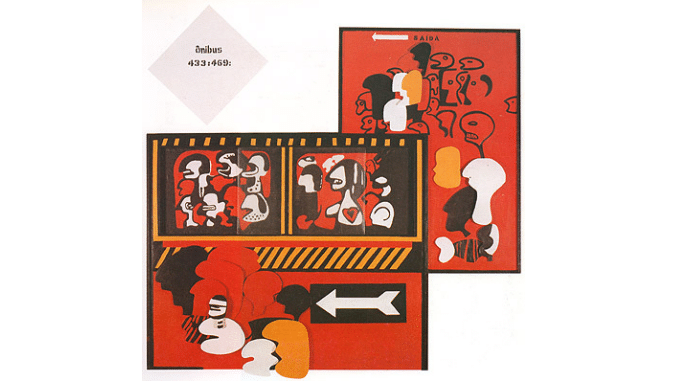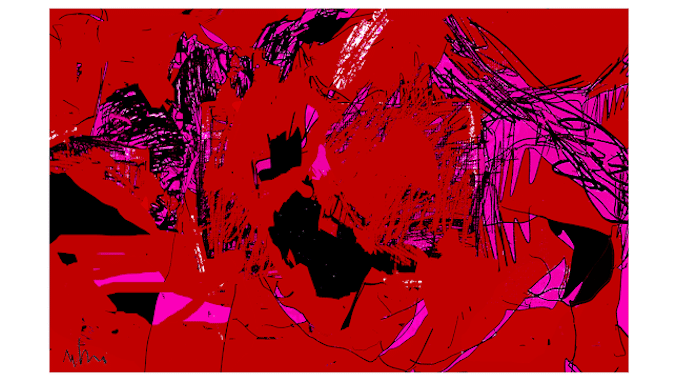Por ARI MARCELO SOLON*
A invenção de um criticismo revolucionário em que o poder se encontra ao lado dos oprimidos
Em um comentário no livro Pauline Ugliness: Jacob Taubes and the Turn to Paul, Ole Jakob Løland argumenta em favor do papel de Jacob Taubes em relação à retomada dos ensinamentos do apóstolo Paulo para além dos círculos teológicos tradicionais, visto que a colocação do apóstolo enquanto figura central nos discursos da esquerda, do ponto de vista da política ocidental e do pensamento filosófico, não se restringe aos esforços recentes de Giorgio Agamben, Alain Badiou ou Slavoj Žižek.
Por meio de sua obra, Løland evidencia o papel do apóstolo Paulo para Taubes em relação aos debates filosóficos da Europa do século XX. É através de um enfrentamento da concepção tradicional do referido apóstolo – enquanto primeiro cristão a romper definitivamente com o Judaísmo e que esvaziou o potencial político do Cristianismo – que Taubes enfatiza, por outro lado, o papel das raízes judaicas em Paulo, além da importância, na perspectiva política, do papel revolucionário da doutrina da cruz por ele defendida.
Encontramos em Hans Kelsen (1966, p. 7) um erro ao dizer que o misticismo de Paulo é uma teologia jurídica para subserviência ao César: “There is no governing authority except from God”.
O referido contraponto, a partir de uma leitura mais atenta, conforme consta na nota de rodapé nº 9, do texto The Idea of Justice in the Holy Scriptures, em que Kelsen (1971) cita Robert Eisler. Nesse sentido, Eisler (1931, p. 334-335) interpretou que Jesus queria dizer com a expressão “Dai a César o que é de César” o seguinte: “Render unto Caesar the things that are Caesar’s ‘ really means: ‘ Throw Caesar’s, i.e. Satan’s, money down his throat,8 so that you may then be free to devote yourselves wholly to the service of God.’ ‘For no man can serve two masters : for either he will hate the one and love the other, or else he will hold to the one and despise the other. Y e cannot serve God and tnammon,’ mammon being the whole system of money and credit, which, like some rival god and the author of all evil, is the real ‘ temporal ‘ lord of this world”.
A segunda prova que reunimos com o objetivo de lançar luz sobre o erro de Kelsen pode ser encontrada em Nietzsche, cuja interpretação acerca do apóstolo Paulo envolve um ódio comum da camada social mais baixa em relação a Roma: “Nietzsche’s Paul is full of hatred against Rome and unites all at the bottom of society in their common resentment in a great anarchistic power. His Paul unites these people in a secret rebellion against what is noble and beautiful, while adhering to the ugly cross of their God who chose the weak and fool.” (Løland, 2020, p. 172).
Outra prova colhida pode ser encontrada em Erich Auerbach, referenciado por Jacob Taubes (1996), no artigo “Sermo Humilis“, em que se pode extrair o seguinte: Auerbach posits a break in literary language, which occurs with the Christian genre of sermo humilis. This is a literary form Auerbach locates in Augustine and that shapes European intellectual history since. According to Auerbach, the style of the sermo humilis was ‘a radical departure from the rhetorical, and indeed from the entire, literary tradition.’ This departure constituted a new Christian sublime. If the Christian will pride himself only in weakness, he will have to refer to this strength with a kind of literary or rhetorical modesty.” (Løland, 2020, p. 173).
A referência a Auerbach (1953, p. 318) importa na observação de que a encarnação nada mais é que a humilhação voluntária ilustrada por uma vida na terra em meio à classe social mais baixa, ponto no qual o estético e social estão conectados: “Das Thema konnte nach mehreren Richtungen ausgebaut werden. Die Inkarnation im ganzen ist freiwillige Erniedrigung, die Art derselben in niedrigstem Stande, das Leben auf Erden zwischen den materiell und geistig Armen, die Art der Lehre und der Dienstleistungen entfalten die Erniedrigung im einzelnen”;
A terceira prova pode ser extraída de Walter Benjamin, invocado por Taubes (2010, p. 73): “I see Benjamin as the exegete of the “nature” of Romans 8, of decay, and of Romans 13, nihilism as world politics. And this is something that Nietzsche already saw, and Nietzsche resisted.” O segredo para se fazer tal interpretação é encontrar o ponto de contato entre Paulo e Benjamin, leitura essa que pode foi observada por Løland (2020, p. 189): “Taubes could have made a contrast between Benjamin and Adorno without recourse to Paul. Nonetheless, to draw out this contrast between the messianic thinker and the merely aesthetic thinker does not appear as the only purpose for bringing Walter Benjamin into the readings of Paul.”
A obra de Løland fornece, consequentemente, uma leitura possível a respeito da interpretação de Taubes em relação ao movimento de Paulo, porquanto se trate de um movimento responsável pelo nascimento de uma política que se volta à “feiúra”, isto é, a invenção de um criticismo revolucionário em que o poder se encontra ao lado dos oprimidos.
*Ari Marcelo Solon é professor da Faculdade de Direito da USP. Autor, entre outros, livros, de Caminhos da filosofia e da ciência do direito: conexão alemã no devir da justiça (Prismas).
Referências
AUERBACH, Erich. SERMO HUMILIS. Romanische Forschungen, v. 64, n. 3-4, p. 304-364, 1952.
EISLER, Robert. The Messiah Jesus and John the Baptist. Nova Iórque: The Dial Press, 1931.
KELSEN, Hans. ON THE PURE THEORY OF LAW. Israel Law Review, v. 1, n. 1, jan. 1966.
KELSEN, Hans. What is Justice?. Berkeley/Los Angeles/Londres: University of California Press, 1971.
LØLAND, Ole Jakob. Pauline Ugliness: Jacob Taubes and the Turn to Paul. Nova Iórque: Fordham University Press, 2020.
























